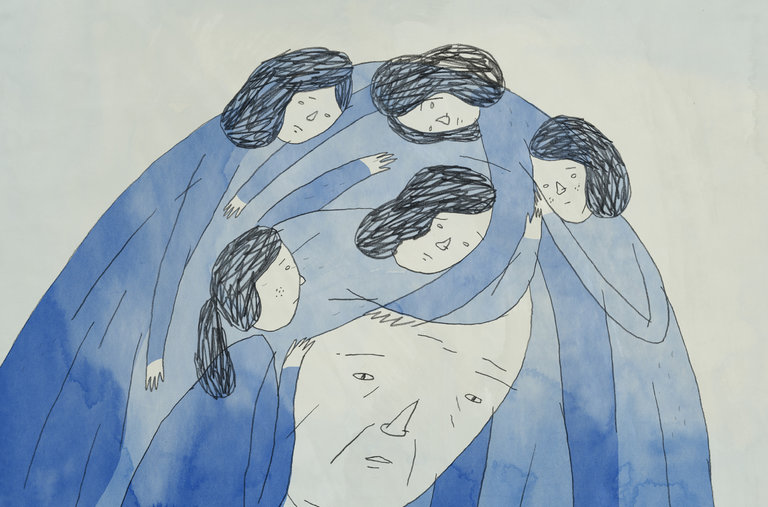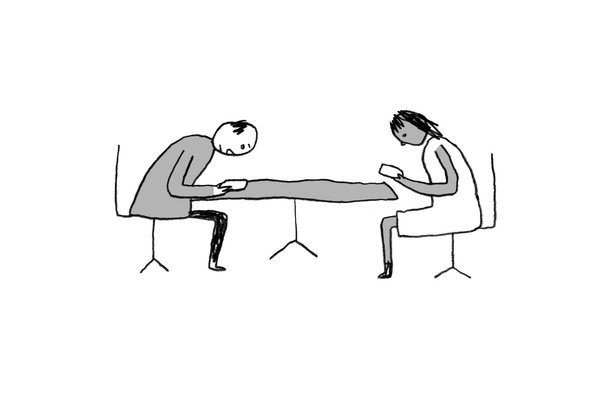When my mother was booted from an assisted living facility in North Carolina for being “too high maintenance,” my husband, Ted, and I agreed to have her live near us in Prescott, Ariz.
She had spent seven years of dementia in assisted-living facilities, first near my brother in Austin, Tex., and then near my two sisters in Asheville, N.C. It was our turn. My mother never liked any of these facilities, but she disliked the one here most of all. Sometimes, she disliked me.
One of the few things she did like about Prescott was being reunited with her old car, a 1992 Honda Accord she had sold to me years before, shortly after my father had died.
The Honda connected her to her life before dementia in Austin, where she had a church, Bible study and friends. In Prescott, she had no church, no friends, and her only outings were when I would take her to get her hair done or to do errands. She was happiest when we were in the Honda and took pride in the fact that the car had been hers, a reminder that she once had been independently mobile.
Our outings followed a routine, on account of her dementia. She would scream, “Ow!” as I helped lower her into the car. She would sit with her legs facing out and then slowly scoot herself to face forward enough to get both legs inside the car. She would ask for help with the seatbelt, but when I would help, she’d say, “Be careful! Don’t be so rough!”
When we had her situated, a staff member from the care home would hand me her container of Boost, a nutritional drink, and I would hand it to my mother. She could open the lid but not the foil seal, so she would pass it to me. No matter if we were going to her hair appointment or to her psychiatrist, Boost always made her happy.
That day we were headed to Prescott’s only shopping mall. Over the last few months, we had gone there to buy her tennis shoes, underwear, a nightgown and a new dress, all at Dillard’s. But this time she wanted to stay in the car.
“You sure?” I said. “You like Dillard’s.”
She was sure. She trusted me to find the Clinique makeup remover she needed.
I cracked the windows and told her I’d be quick.
I didn’t like leaving her in the car, knowing she could forget entirely where I had gone and why she was there without me, but the errand was made so much easier by her absence. No getting the folded-up walker out of the trunk. No protracted process of helping her out. No waiting for her to find and put on her sunglasses. No waiting while she walked so slowly. Without her along, I jogged.
Returning minutes later, I was relieved to see her in the passenger seat, right where I had left her. She was leaning forward, rummaging through the open glove compartment.
“Hey,” I said.
“That was fast,” she said.
I gave her the makeup remover, but she was intent on the contents of the glove compartment.
“Anything good in there?” I asked.
She showed me what was in her lap: a tire gauge, a wine opener, a small screwdriver and a first aid kit. “I used to keep cash in here,” she said.
I remembered. She would go to the drive-through at her bank and put the envelope of money in the glove compartment. She liked stashing cash in different places as backup for emergencies. Often she would forget she had done this and go get more. In her condo in Austin, I had found envelopes of $20 bills in spare purses in her closet and in the vegetable drawer of the extra refrigerator.
She pulled out the blue zippered pouch that held the insurance and registration. “This comes in handy,” she said.
I agreed.
The day the old Honda finally stopped running, without warning, while I was driving within a mile of my house, my mother had been dead for three and a half years. I know this only by looking at a calendar. Emotionally, it felt much closer, maybe a few months. With the car and my mother so connected, I remember thinking: “Really? Now the car?” I took it personally, as if I were being hammered by misfortune.
I figured it was the oil, which I had neglected to check. I had neglected the car generally, but I loved it. It had belonged to only two people: my mother and me. A copy of our handwritten payment agreement, detailing a year of monthly checks I paid her, was in the glove compartment, inside the blue zippered pouch.
“Paid in full,” it had said for more than a decade, but that sweet contract between my mother and me was something I wanted to keep. Her time in Prescott was so much shorter than we had expected. With the amount of money left for her care, we had budgeted for 12 years. After moving to be near us, she lived only 11 months.
I called AAA first, and then Ted, who joined me and brought me a coat, as it would be cold once the sun went down. We had the guy tow the car to Kent, our mechanic.
Turned out to be the timing belt, which blew while the car was running, in motion. Kent said to me, so gently, “A car this old isn’t worth investing that kind of money.” He gave me the name of a local guy who might give me $400 to use it for parts.
I asked if he could keep the car for two weeks because I was leaving to visit my niece in California. He said no problem; he would move it out to the street for now.
My mother had also died in motion, without warning. She was walking from the lunch table to the bathroom when she collapsed.
After returning from California, I still didn’t deal with the car. Our mechanic’s garage is in a neighborhood I drive through every day, but I couldn’t bear to see the old car there, radiating abandonment, so whenever I drove by I’d keep gazing straight ahead.
Finally, Ted convinced me to have it towed to our carport until I could figure out what to do. Brilliant. Why hadn’t I thought of that? Once the car was home, visible every time I came and went, it rejoined the family, like a low-maintenance version of my mother.
Ted was on the job market that winter and had landed several Skype interviews. Our house isn’t big, so on a day he needed quiet to be interviewed, I decided to go down to the carport, sit in the old Honda and write.
I put on long underwear, a down jacket, hat, gloves and boots. I got in on the passenger’s side, where my mother used to sit, and reached to open the rear vent window for air. I pushed the seat back all the way and covered my lap with a fleece blanket.
Inside, the car was like a time capsule from the day the timing belt failed. There was a receipt from the veterinarian, directions to a friend’s new home on a Post-it note, a piece of chewed gum in a wrapper.
I released the parking brake and the car sighed. No need anymore for that tension.
Reaching down for the lever to recline the seat, my fingers landed on a piece of round plastic. It was a maroon Boost cap.
Funny how something like that can transport you.
What would I have given right then to wait patiently as my mother made her long, slow way to the car. To hear her say, “Ow, be careful.” To buckle her seatbelt for her, open her drink and witness her satisfied first sip. I would have driven her anywhere.



I opened the glove compartment and sifted through its contents: plastic blue pouch, tire gauge, screwdriver, wine opener and plastic fork and spoon. I sat in that seat as if it were my mother’s lap, looked out at yesterday’s snow and closed my eyes.
I don’t know how long I stayed there. An hour? More? It was womb-like, a cocoon.
Eventually, Ted knocked on the window, smiling, saying, “Come back in. You must be freezing.”
I wasn’t able to part with the Honda until a month later when, in preparing to move to California for Ted’s new job, getting rid of the car became just one more item on a very long to-do list.
The guy who bought it for parts hooked it up and towed it away. I knew better than to watch.
Melanie Bishop taught writing for 22 years at Prescott College in Arizona. She recently completed a work of nonfiction about her mother.
Modern Love can be reached at modernlove@nytimes.com.
To hear Modern Love: The Podcast, subscribe on iTunes or Google Play Music. To read past Modern Love columns, click here. Continue following our fashion and lifestyle coverage on Facebook (Styles and Modern Love), Twitter (Styles, Fashion and Weddings) and Instagram.







